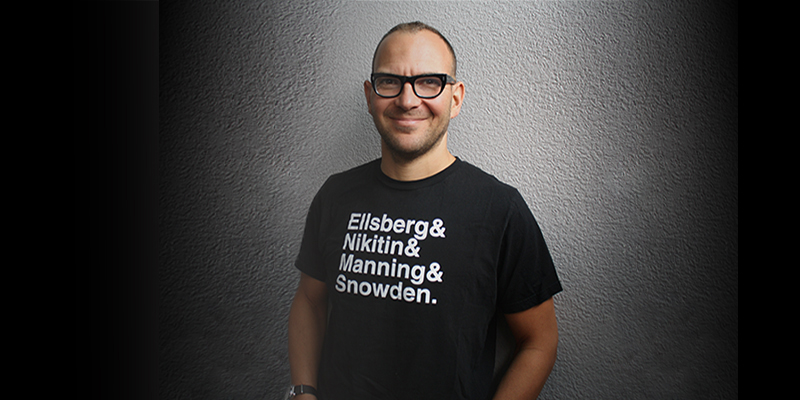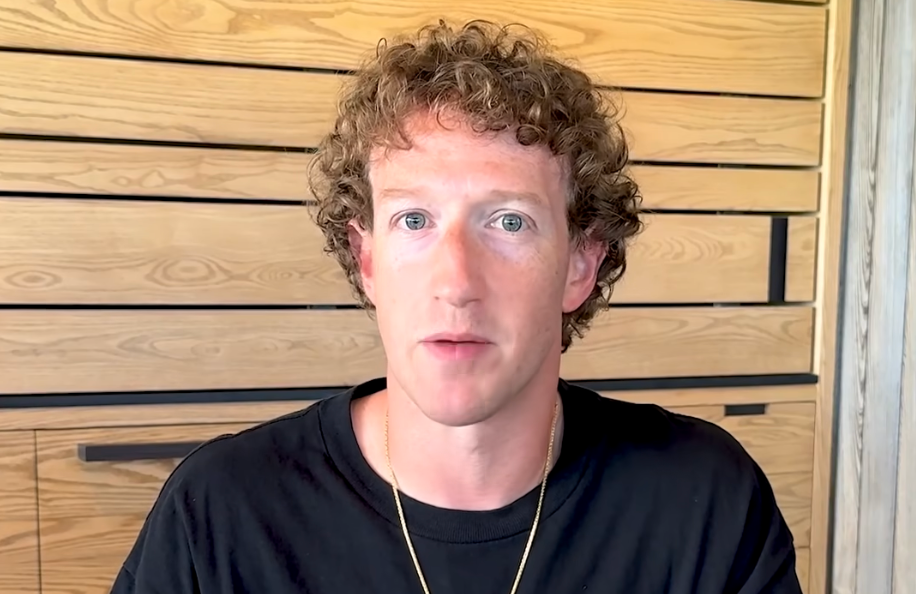Many of us have left the big social media platforms; far more of us *wish* we could leave them; and even those of us who've escaped from Facebook/Insta and Twitter still spend a lot of time trying to figure out how to get the people we care about off o...
-
A company that neutralizes, buys or destroys competitors can treat its users far worse - invade their privacy, cheap out on moderation and anti-spam, etc - without losing business. That's why Zuck's motto is "it is better to buy than to compete":

Zuckerberg: ‘its better to buy than compete’. Is Facebook a monopoly?
Wednesday’s lawsuits in the US against Facebook’s market power are the latest escalation in the battle between regulators and tech giants that could reshape the social media industry.

Zuckerberg: ‘its better to buy than compete’. Is Facebook a monopoly? (www.trtworld.com)
Of course, as a leftist, I know better than to count on markets as a reliable source of corporate discipline. Even more important than market discipline is government discipline, in the form of regulation
15/
-
If Zuck feared fines for privacy violations, or moderation failures, or anticompetitive mergers, or fraudulent advertising systems that rip off publishers and advertisers, or other forms of fraud (like the "pivot to video"), he would treat his users better. But Facebook's rise to power took place during the second half of the neoliberal era, when the last shreds of regulatory muscle that survived the Reagan revolution were being devoured by GW Bush and Obama (and then Trump).
16/
-
As cartels and monopolies took over our economy, most government regulators were neutered and captured. Public agencies were stripped of their powers or put in harness to attack small companies, customers, and suppliers who got in the way of monopolists' rent-extraction. That meant that as Facebook grew, Zuckerberg had less and less to fear from government enforcers who might punish him for enshittification where the markets failed to do so.
17/
-
But it's worse than that, because Zuckerberg and other tech monopolists figured out how to harness "IP" law to get the government to shut down third-part technology that might help users resist enshittification. IP law is why you can't make a privacy-protecting ad-blocker for an app (and why companies are so desperate to get you to use their apps rather than the open web, and why apps are so dismally enshittified).
18/
-
IP law is why you can't make an alternative client that blocks algorithmic recommendations. IP law is why you can't leave Facebook for a new service and run a scraper that imports your waiting Facebook messages into a different inbox. IP law is why you can't scrape Facebook to catalog the paid political disinformation the company allows on the platform:

Cory Doctorow: IP
The magazine of the science fiction, fantasy, and horror field with news, reviews, and author interviews

Locus Online (locusmag.com)
19/
-
IP law's growth has coincided with Facebook's ascendancy - the bigger Facebook got, the more tempting it was to interoperators who might want to plug new code into it to protect Facebook users, and the more powers Facebook had to block even the most modest improvements to its service. That meant that Facebook could enshittify even more, without worrying that it would drive users to take unilateral, permanent action that would deprive it of revenue, like blocking ads.
20/
-
Once ad-blocking is illegal (as it is on apps), there's no reason not to make ads as obnoxious as you want.
Of course, many Facebook *employees* cared about their users, and for most of the 21st century, those workers were a key asset for Facebook. Tech workers were in short supply until just a couple years ago, when the platforms started round after round of brutal layoffs - 260,000 in 2023, another 150,000+ in 2024.
21/
-
Facebook workers may be furious about Zuckerberg killing content moderation, but he's not worried about them quitting - not with a half-million skilled tech workers out there, hunting for jobs. Fuck 'em. Let 'em quit:

‘It’s Total Chaos Internally at Meta Right Now’: Employees Protest Zuckerberg’s Anti LGBTQ Changes
Meta's decision to specifically allow users to call LGBTQ+ people "mentally ill" has sparked widespread backlash at the company.
404 Media (www.404media.co)
This is what changed: the collapse of market, government, and labor constraints, and IP law's criminalization of disenshittifying, interoperable add-ons.
22/
-
This is why Zuck, an eternal creep, lets his creep flag fly so proudly today. Not because he's a worse person, but because he understands he can hurt his users and workers to benefit his shareholders without any consequences. Zuck 2025 isn't the most evil Zuck, he's the most unconstrained Zuck.
Same goes for Twitter. I mean, obviously, there's been a change in management at Twitter - the guy who's enshittifying it today isn't the guy who enshittified it prior to last year.
23/
-
Musk is speedrunning the enshittification curve, and yet Twitter isn't collapsing. Why not? Because Musk is insulated from consequences for fucking up - he's got a huge cushion of wealth, he's got advertisers who are desperate to reach his users, he's got users who can't afford to leave the service, he's got IP law that he can use to block interoperators who might make it easier to migrate to a better service.
24/
-
He was always a greedy, sadistic asshole. Now he's an *unconstrained* greedy, sadistic asshole. Musk 2025 isn't a worse person than Musk 2020. He's just more free to act on his evil impulses than he was in years gone by.
25/
-
These are the two factors that make services terrible: captive users, and no constraints. If your users can't leave, and if you face no consequences for making them miserable (not solely their departure to a competitor, but also fines, criminal charges, worker revolts, and guerrilla warfare with interoperators), then you have the means, motive and opportunity to turn your service into a giant pile of shit.
26/
-
That's why we got Jack Welch and his acolytes when we did. There were always evil fuckers just like them hanging around, but they didn't get to run GM Entil Ronald Reagan took away the constraints that would have punished them for turning GE into a giant pile of shit. Every economy is forever a-crawl with parasites and monsters like these, but they don't get to burrow into the system and colonize it until policymakers create rips they can pass through.
27/
-
In other words, the profit motive itself is not sufficient to cause enshittification - not even when a for-profit firm has to answer to VCs who would shut down the company or fire its leadership in the face of unsatisfactory returns. For-profit companies chase *profit*. The enshittifying changes to Facebook and Twitter are cruel, but the cruelty isn't the point: the point is *profits*.
28/
-
If the fines - or criminal charges - Facebook faced for invading our privacy exceeded the ad-targeting revenue it makes by doing so, it would stop spying on us. Facebook wouldn't like it. Zuck would hate it. But he'd do it, because he spies on us to make money, not because he's a voyeur.
To stop enshittification, it is not necessary to eliminate the profit motive - it is only necessary to make enshittification unprofitable.
29/
-
This is not to defend capitalism. I'm not saying there's a "real capitalism" that's good, and a "crony capitalism" or "monopoly capitalism" that's bad. All flavors of capitalism harm working people and seek to shift wealth and power from the public and democratic institutions to private interests. But that doesn't change the fact that there are, indeed, different flavors of capitalism, and they have different winners and losers.
30/
-
Capitalists who want to sell apps on the App Store or reach customers through Facebook are technofeudalism's losers, while Apple, Facebook, Google, and other Big Tech companies are technofeudalism's great winners.
Smart leftism pays attention to these differences, because they represent the potential fault lines in capitalism's coalition.
31/
-
These people all call themselves capitalists, they all give money and support to political movements that seek to crush worker power and human rights - but when the platforms win, the platforms' business customers lose. They are irreconcilably on different sides of a capitalism-v-capitalism fight that is every bit as important to them as the capitalism-v-socialism fight.
32/
-
I'm saying it's good praxis to understand the divisions in capitalism, because then we can exploit those differences to make real, material gains for human thriving and worker rights. Lumping all for-profit businesses together as identical and irredeemable is bad tactics.
Legacy social media is at a turning point. Two systems built on open standards have emerged as a credible threat to the zuckermuskian model: Mastodon (built on Activitypub) and Bluesky (built on Atproto).
33/
-
The former is far more mature, with a huge network of federated servers run by all different kinds of institutions, from hobbyists to corporations, and it's overseen by a nonprofit. The latter has far more users, and is a VC-backed corporate entity, and while it is hypothetically federatable, there are no Bluesky services apart from the main one that you can leave for if Bluesky starts to enshittify.
34/

